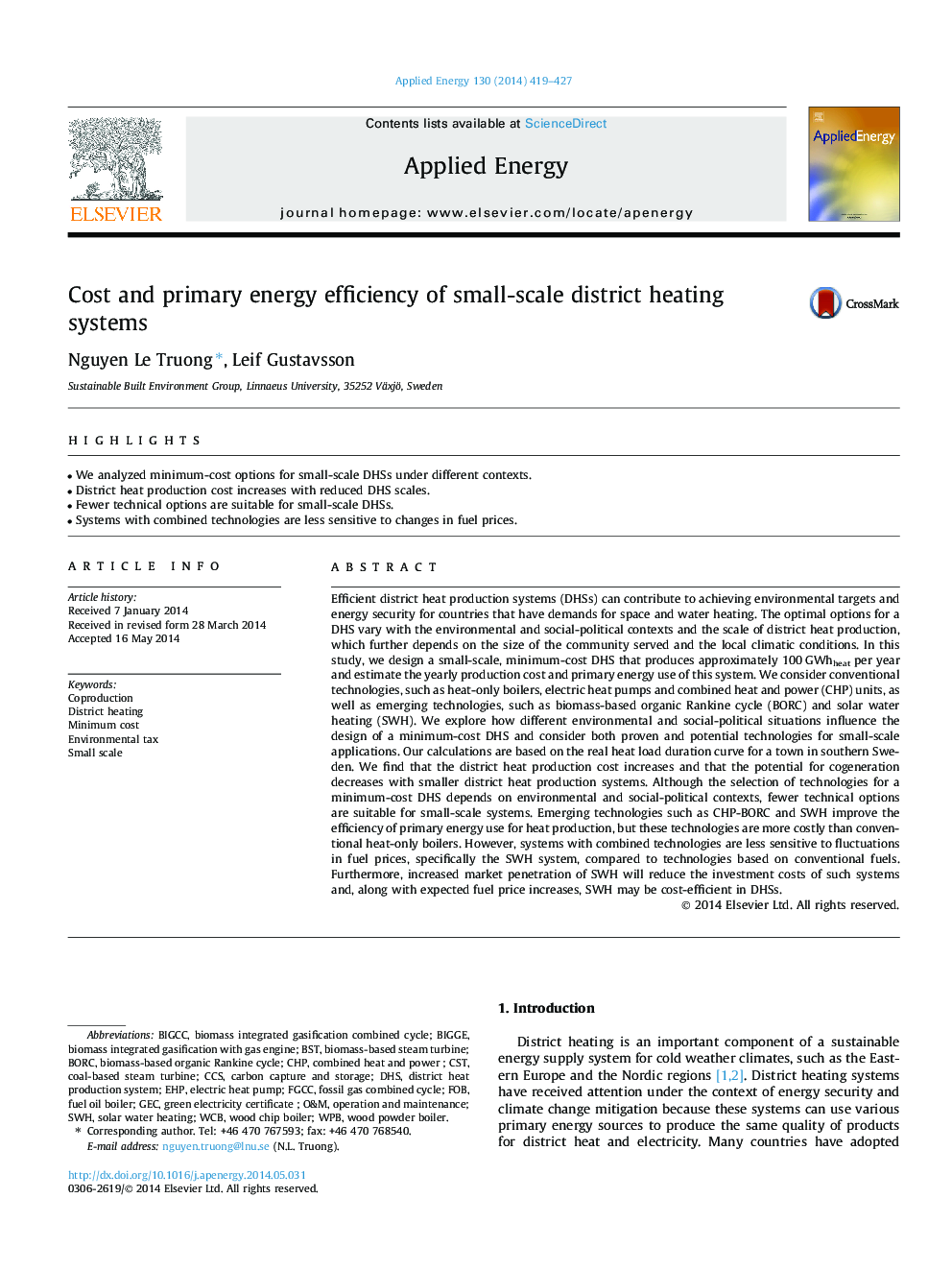| کد مقاله | کد نشریه | سال انتشار | مقاله انگلیسی | نسخه تمام متن |
|---|---|---|---|---|
| 6690112 | 501894 | 2014 | 9 صفحه PDF | دانلود رایگان |
عنوان انگلیسی مقاله ISI
Cost and primary energy efficiency of small-scale district heating systems
ترجمه فارسی عنوان
هزینه های اولیه و بهره وری انرژی سیستم های گرمایش منطقه ای در مقیاس کوچک
دانلود مقاله + سفارش ترجمه
دانلود مقاله ISI انگلیسی
رایگان برای ایرانیان
کلمات کلیدی
CCSCHPWPBDHSBSTGECFOBSWHEHPWCBBIGCCO&M - A & MCSt - CSTCombined Heat and Power - ترکیب گرما و قدرتCarbon capture and storage - جذب و ذخیره کربنMinimum cost - حداقل هزینهoperation and maintenance - عملیات و نگهداریEnvironmental tax - مالیات بر محیط زیستSmall scale - مقیاس کوچکCoproduction - همکاریElectric heat pump - پمپ حرارتی الکتریکیSolar water heating - گرمایش آب خورشیدیDistrict heating - گرمایش ناحیه ای
موضوعات مرتبط
مهندسی و علوم پایه
مهندسی انرژی
مهندسی انرژی و فناوری های برق
چکیده انگلیسی
Efficient district heat production systems (DHSs) can contribute to achieving environmental targets and energy security for countries that have demands for space and water heating. The optimal options for a DHS vary with the environmental and social-political contexts and the scale of district heat production, which further depends on the size of the community served and the local climatic conditions. In this study, we design a small-scale, minimum-cost DHS that produces approximately 100Â GWhheat per year and estimate the yearly production cost and primary energy use of this system. We consider conventional technologies, such as heat-only boilers, electric heat pumps and combined heat and power (CHP) units, as well as emerging technologies, such as biomass-based organic Rankine cycle (BORC) and solar water heating (SWH). We explore how different environmental and social-political situations influence the design of a minimum-cost DHS and consider both proven and potential technologies for small-scale applications. Our calculations are based on the real heat load duration curve for a town in southern Sweden. We find that the district heat production cost increases and that the potential for cogeneration decreases with smaller district heat production systems. Although the selection of technologies for a minimum-cost DHS depends on environmental and social-political contexts, fewer technical options are suitable for small-scale systems. Emerging technologies such as CHP-BORC and SWH improve the efficiency of primary energy use for heat production, but these technologies are more costly than conventional heat-only boilers. However, systems with combined technologies are less sensitive to fluctuations in fuel prices, specifically the SWH system, compared to technologies based on conventional fuels. Furthermore, increased market penetration of SWH will reduce the investment costs of such systems and, along with expected fuel price increases, SWH may be cost-efficient in DHSs.
ناشر
Database: Elsevier - ScienceDirect (ساینس دایرکت)
Journal: Applied Energy - Volume 130, 1 October 2014, Pages 419-427
Journal: Applied Energy - Volume 130, 1 October 2014, Pages 419-427
نویسندگان
Nguyen Le Truong, Leif Gustavsson,
